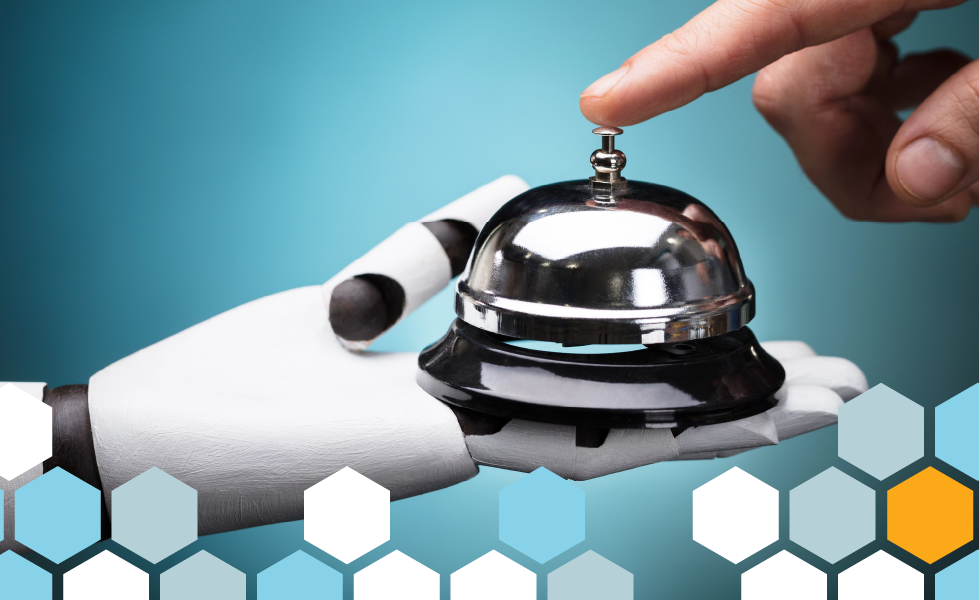QA Leaders: AI can help your team become better testers!
While some believe AI is the end of the average worker, Carl Benedikt Frey and Michael Osborne believe AI will benefit the inexperienced workers most.
AI Will Change How Testers Work
As you all know, we are in the early days of the AI revolution. At the same time, AI software testing tools started appearing in the marketplace years ago. This first generation of AI testing tools focused on helping with menial tasks. Most of them handle the typical false failures during GUI test automation runs. Some do visual testing, which is nothing more than comparing an image with another.
The next generation of AI tools, like Testaify, will focus on performing regular tasks and sharing findings with users. In the case of Testaify, it can discover the application, design test cases, generate the input data for those test cases, and execute them. At first glance, this might seem menacing to some, but the first set of studies suggests that is not the case.
Many years ago, a former boss, Paul Warren, gave me one of the best gifts anyone has ever given me: a one-year subscription to The Economist magazine. It was the best gift for someone interested in knowing about many subjects and keeping up with world events. Since then, I have been a loyal subscriber.
In one of the September 2023 issues of this weekly magazine, they have a column by the authors of a paper titled The Future of Employment (paper is behind a paywall). In this ten-year-old paper, Carl Benedikt Frey and Michael Osborne estimated that 47% of US employment was at risk due to further improvements in computer technology.
The Economist invited them to write an article regarding AI and its impact on jobs—the following links to that article (the article is behind a paywall). The fascinating aspect of the article is that it states that the early impact of AI is the opposite of what they thought ten years ago. In the article, the authors declare:
The prevailing narrative at the time was that the era of the “average” worker was ending, with machines progressively replacing routine and administrative jobs. Highly skilled professionals were the ones reaping the benefits, as computers made them more productive and enabled them to sell their services locally and around the world. A decade on, what is known as generative AI seems to be disrupting such trends: the era of “average” is making a comeback.
Specifically, we have learned that the most recent set of AI tools is helping junior employees improve their performance. For example, Microsoft GitHub Copilot helps junior software engineers much more than senior software engineers. It also allows them to learn by reviewing and analyzing all the recommendations coming from Copilot. As stated in the article, It’s not the seasoned experts whose productivity is increasing the most, but rather those with the least experience in programming.
The authors are concerned that this democratization of skills might bring wages down the same way GPS and Uber brought the earnings of taxi drivers down. While that might happen for some jobs, like screenwriters, it is less likely in software development. The need for software development continues to increase and exceeds the demand considerably. The combinatorics for testing mean that the need for more tests will continue to exist for a long time. As we discussed in a previous post, the quality standard keeps rising.
These findings match what we expect to see in the quality assurance. The first generation of AI testing tools helped with tasks no one wanted to do, like watching and fixing test scripts.
Testaify will design test cases using multiple testing techniques and generate specific test input data for those test cases. Many junior testers need to learn most techniques and help create the correct input data for the test cases they design.
QA leaders paying attention to AI must add the next generation of AI tools to their budgets. This new generation of AI testing tools will help their team get better at what they are doing. A new tester will see how AI designs test cases and applies testing techniques like boundary value and state transition. It will help them understand how to develop the correct input data for this test. It will even show them how to properly document their findings of potential defects.
QA leaders can hire new testers and provide them access to Testaify to use as they learn and work. This action will immediately boost productivity instead of waiting for many months until the new tester knows the product.
The Future of Software Testing is Coming Soon! QA Leaders, be ready and don’t be left behind.
About the Author
 Testaify founder and COO Rafael E. Santos is a Stevie Award winner whose decades-long career includes strategic technology and product leadership roles. Rafael's goal for Testaify is to deliver comprehensive testing through Testaify's AI-first platform, which will change testing forever. Before Testaify, Rafael held executive positions at organizations like Ultimate Software and Trimble eBuilder.
Testaify founder and COO Rafael E. Santos is a Stevie Award winner whose decades-long career includes strategic technology and product leadership roles. Rafael's goal for Testaify is to deliver comprehensive testing through Testaify's AI-first platform, which will change testing forever. Before Testaify, Rafael held executive positions at organizations like Ultimate Software and Trimble eBuilder.
Take the Next Step
Join the waitlist to be among the first to know when you can bring Testaify into your testing process.




